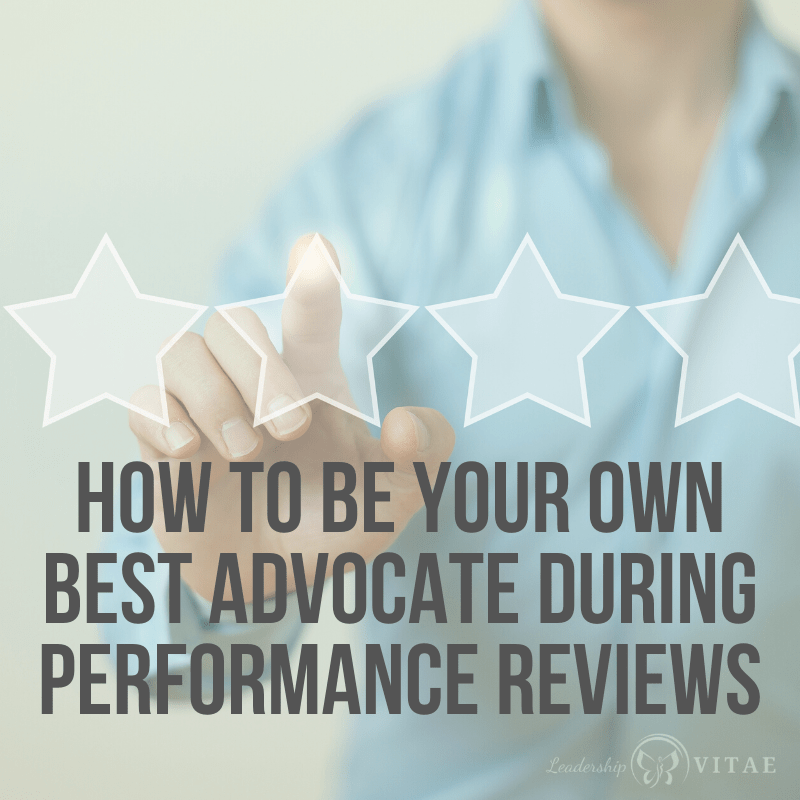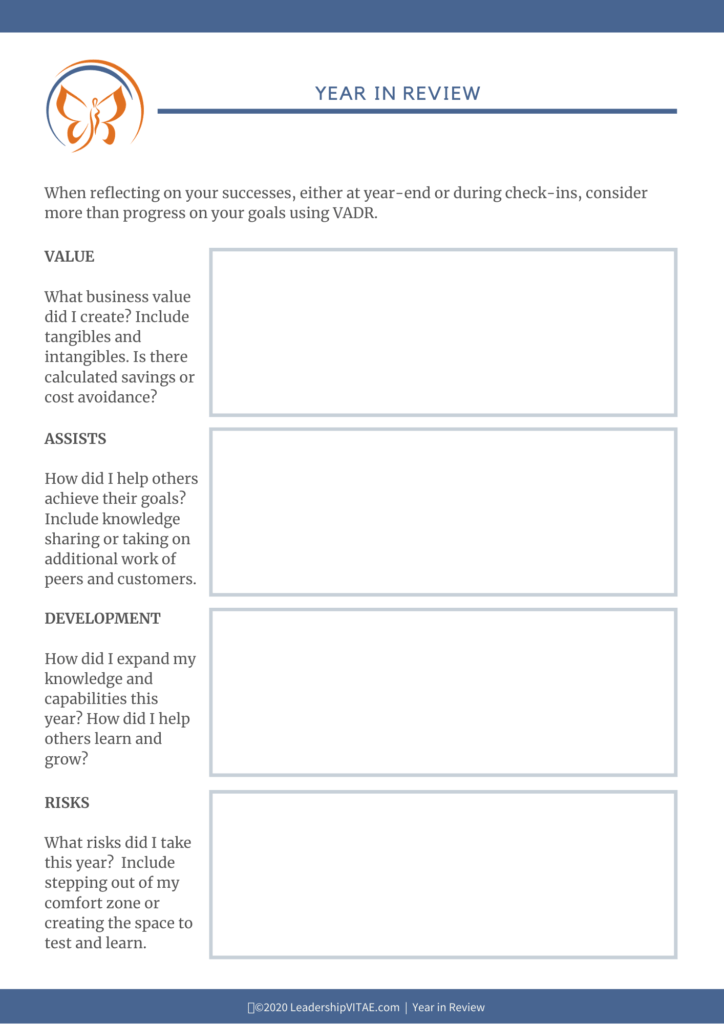
It’s that time of year again. A new year has started, but before we completely refocus on the work ahead, we need to close out the year before.
We each have unique objectives, targets, and measures of success in our roles. For most companies, our performance relative to those elements is how we are evaluated each year.
It’s rarely enough. It doesn’t always reflect the entirety of our contribution.
Many organizations offer at will employment. We are all replaceable. However, we each bring unique experience, energy, and approach to our roles. Someone else may be able to do WHAT we do. No one else will do it HOW we do.
We have an opportunity to advocate for ourselves during our review. Advocate for the how that makes us unique. The little extra that makes a huge difference between us and the next gal or guy.
Four additional performance considerations – VADR
Beyond progress on objectives, targets, and measures of success, we have further opportunities to evaluate. VADR stands for Value, Assists, Development, and Risks.
V – Value
Questions to ask:
- What business value did I create?
- What savings or cost avoidance can be calculated and attributed to this work?
Direct value may include a cost saving idea or revenue generation. Also consider whether our work created indirect value, like risk mitigation or creating solutions that help another team achieve direct value.
A – Assists
Questions to ask:
- How did I support the accomplishments of another team or organization?
- Did I help someone else achieve their goals?
Our Assists may be to team members, peers, partners, or customers. Our contributions may include filling in for others or taking on their tasks. It might include solving problems differently to meet our needs and those of others.
D – Development
Questions to ask:
- What growth have I experienced this year?
- How have I developed myself or others?
Development can include courses, conferences, reading, application of learnings, new experiences, coaching and mentoring. Maybe we took on a new responsibility and had to learn on the job. Or helped someone else do the same.
R – Risks
Questions to ask:
- How did I create the space for myself or others to learn and potentially fail?
- What risks did I take or encourage in others?
This is a different type of growth than development. Risks are about a willingness to potentially miss a goal and embrace the learnings that come from it. This is about encouraging us and our teams to stretch, fail fast, and iterate.
Bringing it all together
Use this template (image below) to collect information for a performance discussion. Start with free thinking, answering the questions and gathering data. When preparing for the conversation, review the list and pull out examples that can be framed in the context of existing objectives and measures.
For example, maybe an objective was completion of a key project. When considering the success of the project, look beyond measures like dates or success criteria.
- What business value was delivered? How much of that is measurable? Was any delivered early, accelerating value?
- Who did you empower or help as part of the project? Alternatively, who else were you able to assist in addition to delivering on the project?
- What did you and/or your teams learn during the project? How did you balance the needs of the project and your own and your team’s development needs?
- How did you stretch and take risks during the project? What opportunities were there to fail fast or test and learn as part of project delivery?
By expanding a performance conversation beyond objectives, targets and measures, we create a new kind of discussion. One that’s about the meaning we bring to our work. The true value we create.
As leaders, we have an equal opportunity to create a new kind of performance conversation with our teams. If you do not yet ask questions about value, assists, development and risks, it might be time to consider it.
* * *
What else do you consider when reflecting on a prior year’s performance? I would love if you would share your experience in the comments.









